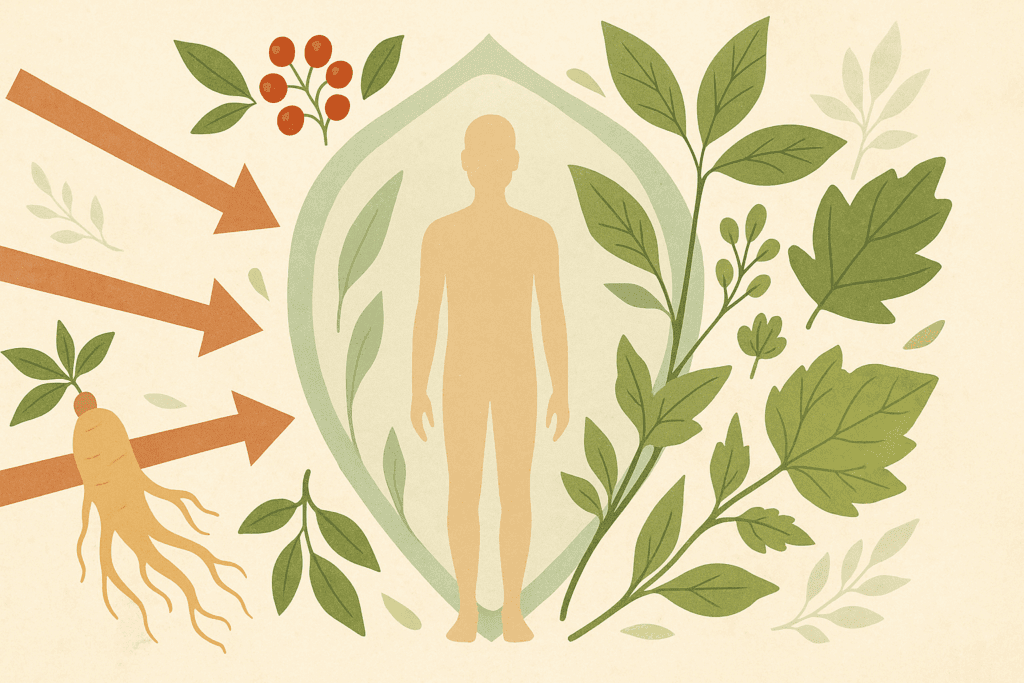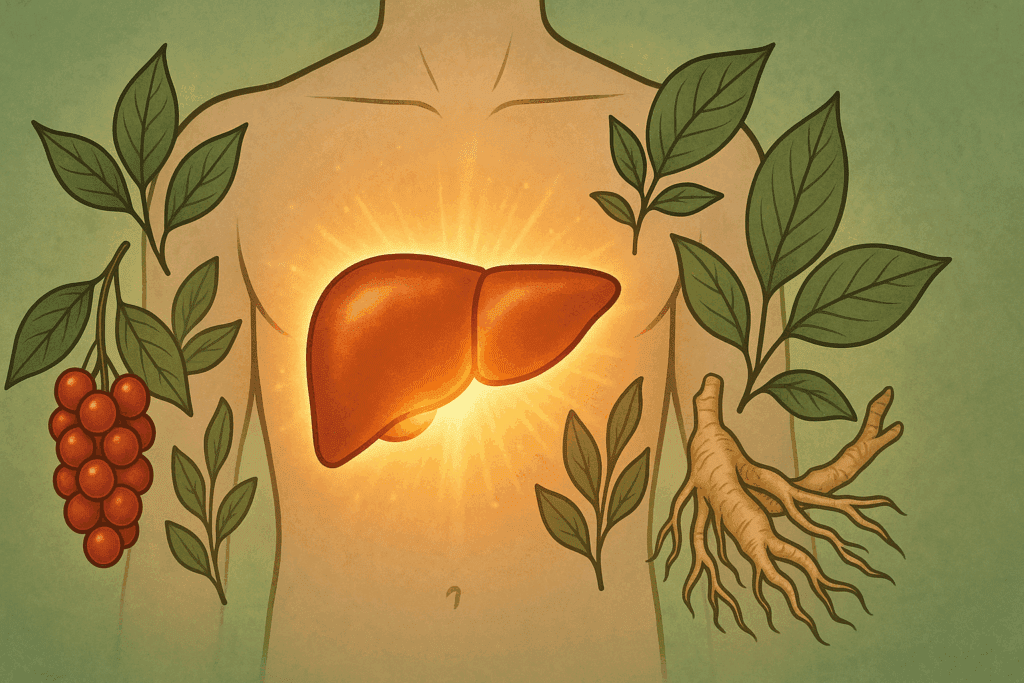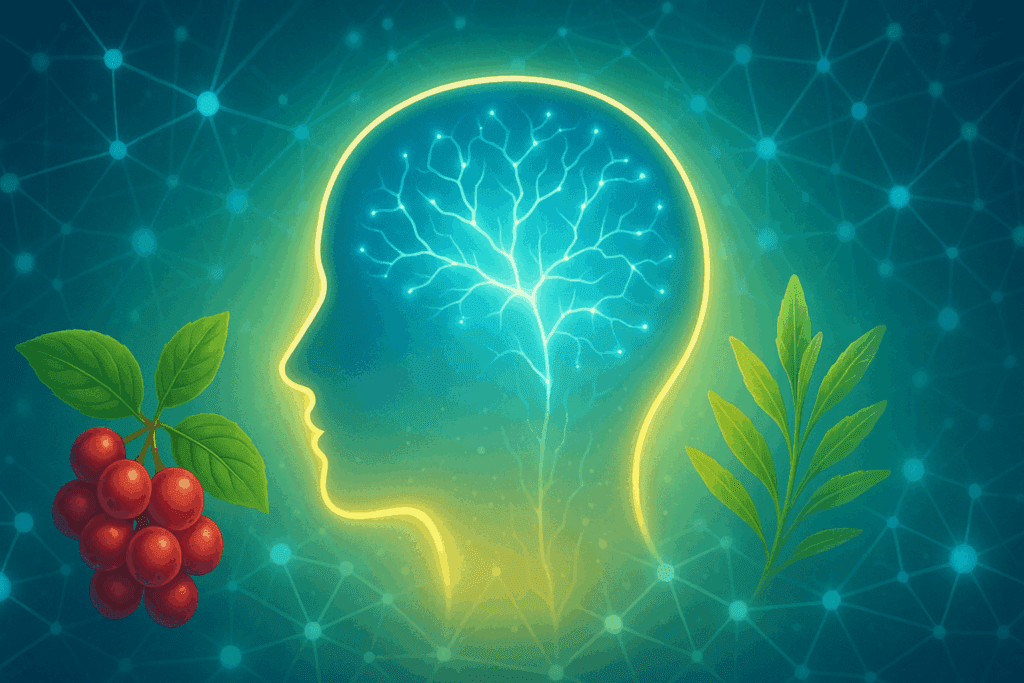In today’s fast-paced world, chronic stress and emotional burnout have become familiar adversaries for many. From workplace pressures to social obligations, the modern lifestyle places a constant demand on our mental and physical endurance. Among the natural solutions gaining attention for promoting calm and resilience, the schisandra adaptogen benefits stand out as particularly compelling. Recognized for centuries in traditional medicine, Schisandra chinensis is now drawing interest from researchers, wellness experts, and health-conscious consumers alike. Its ability to foster emotional equilibrium, enhance physical stamina, and support cognitive clarity positions it as a powerful ally in the quest for holistic stress relief.
The fascination with adaptogens is nothing new. These botanicals, known for their capacity to help the body resist and recover from stress, have seen a resurgence in popularity thanks to their multifaceted health benefits. Schisandra, often regarded as the “five-flavor berry” due to its complex taste profile, is a cornerstone among adaptogenic mushrooms and herbs. Its historical use in Traditional Chinese Medicine (TCM) and its emerging reputation in the West underline its unique biochemical properties and versatile applications. As research unfolds, schisandra adaptogen benefits are becoming increasingly clear—highlighting its role in improving stress resilience, supporting liver health, and enhancing cognitive performance.
You may also like: Unlock Powerful Stress-Relief with Adaptogenic Mushrooms and Stamina Herbal Support

Understanding Adaptogens: Nature’s Stress-Buffering Allies
Adaptogens are a class of natural substances, primarily plant-based, that help the body adapt to physical, chemical, and biological stress. Unlike conventional medications, which often target a specific symptom or organ, adaptogens work by modulating the body’s overall stress response system. They promote homeostasis by regulating the hypothalamic-pituitary-adrenal (HPA) axis, which is central to managing stress hormone levels such as cortisol. By supporting a balanced internal environment, adaptogens enable the body to cope with a broad range of stressors without becoming depleted.
What sets adaptogens apart from other natural remedies is their ability to exert a non-specific yet normalizing effect. This means they can energize when fatigue is present and calm when anxiety is elevated. The dual action of adaptogens like schisandra makes them especially useful for individuals dealing with fluctuating moods, adrenal fatigue, or chronic exhaustion. Moreover, their cumulative benefits grow with consistent use, helping to restore long-term resilience rather than offering temporary relief.
Scientific studies continue to validate the effectiveness of adaptogens. Research has demonstrated that compounds such as lignans, polyphenols, and flavonoids—commonly found in adaptogens—can reduce oxidative stress and inflammation, two key contributors to mood disorders and chronic illness. The adaptogenic potential of schisandra, rhodiola, ashwagandha, and other botanical agents underscores their relevance in integrative wellness protocols.

A Historical Glimpse into Schisandra’s Medicinal Use
Schisandra chinensis has a deep-rooted history in East Asian medicinal traditions. Revered for more than 2,000 years in TCM, it was historically prescribed to balance qi (life force), strengthen kidney and lung function, and enhance mental clarity. Known as Wu Wei Zi in Chinese, meaning “five flavor fruit,” schisandra encapsulates sweet, sour, salty, bitter, and pungent tastes—symbolizing its wide-ranging effects on bodily systems.
Ancient texts and pharmacopoeias describe schisandra as a powerful tonic herb, one that nourishes both mind and body. It was frequently used by emperors and warriors alike to increase stamina, sharpen mental focus, and promote longevity. Tibetan and Russian folk medicine also adopted schisandra, particularly for endurance and resilience in harsh climates. Its berries were dried, brewed into teas, or consumed as part of herbal formulations designed to boost energy and improve recovery.
Today, this historical wisdom is being validated by modern science. Pharmacological investigations have uncovered schisandra’s rich content of bioactive compounds, including schisandrins and gomisins. These constituents exhibit antioxidant, anti-inflammatory, hepatoprotective, and neuroprotective properties. This biochemical complexity is the foundation of schisandra adaptogen benefits and speaks to its holistic impact on human health.

Schisandra Adaptogen Benefits for Stress Relief and Emotional Balance
One of the most remarkable schisandra adaptogen benefits lies in its ability to regulate stress and improve emotional balance. Chronic stress can disrupt the delicate balance of neurotransmitters in the brain, leading to anxiety, depression, and sleep disturbances. Schisandra addresses this by modulating the activity of the HPA axis and promoting the synthesis of mood-stabilizing neurochemicals such as dopamine and serotonin.
Studies have shown that schisandra extracts can help lower cortisol levels in the bloodstream, which is crucial for individuals experiencing stress-related hormonal imbalances. By preventing the overactivation of stress pathways, schisandra enables the body to maintain a calmer, more grounded state. This is particularly beneficial for those with high-stress occupations, caregivers, or individuals recovering from trauma.
Another unique aspect of schisandra is its adaptogenic dualism—its capacity to act as both a stimulant and a relaxant depending on the body’s needs. Unlike caffeine or sedatives, which push the body in one direction, schisandra supports a dynamic equilibrium. It can invigorate mental alertness during fatigue while also soothing an overactive nervous system during periods of anxiety. This bidirectional effect makes it ideal for those navigating fluctuating emotional states.
Furthermore, the neuroprotective effects of schisandra have implications for long-term mental health. Animal studies suggest that schisandra can improve memory, enhance learning, and protect neurons from oxidative damage. These findings offer hope for its use in managing age-related cognitive decline and neurodegenerative conditions. In essence, schisandra provides both immediate stress relief and long-term emotional resilience.

The Synergistic Power of Rhodiola and Schisandra Benefits Combined
While schisandra is impressive on its own, combining it with other adaptogens such as rhodiola amplifies its therapeutic potential. Rhodiola rosea, another celebrated adaptogen, is known for its anti-fatigue, anti-depressive, and cognitive-enhancing properties. When used in tandem with schisandra, the two herbs create a powerful synergy that enhances stress tolerance, mental performance, and emotional well-being.
Rhodiola works primarily by influencing the serotonin and norepinephrine systems, improving the brain’s ability to process emotional stimuli and reducing feelings of burnout. Schisandra, on the other hand, stabilizes the stress response and supports liver detoxification, which is essential for maintaining hormonal balance. Together, they offer a comprehensive adaptogenic solution that addresses both the psychological and physiological dimensions of stress.
Clinical studies have explored this combination with promising results. For instance, trials involving athletes and military personnel have shown improved physical endurance and faster recovery when supplementing with both herbs. In corporate environments, individuals using rhodiola and schisandra supplements reported enhanced concentration, reduced mental fatigue, and better stress management.
This dual adaptogenic approach is particularly suitable for those who experience stress in both the mind and body. Students facing exam pressure, professionals with demanding workloads, and parents juggling multiple responsibilities can all benefit from the balancing effects of these powerful botanicals. The integration of rhodiola and schisandra benefits into daily wellness routines represents a strategic and holistic method for navigating life’s challenges with clarity and composure.
Enhancing Energy and Physical Endurance Naturally
One of the more overlooked schisandra adaptogen benefits is its capacity to boost energy and physical endurance without the jitteriness associated with stimulants. Unlike caffeine or synthetic energizers, schisandra enhances mitochondrial function and improves oxygen utilization at the cellular level. This translates into sustained energy that feels natural and balanced.
Athletes and fitness enthusiasts have begun incorporating schisandra into their performance regimens for its ability to increase stamina and reduce recovery time. Research indicates that schisandra improves aerobic capacity, lowers lactate levels, and protects muscle tissue from oxidative damage during intense exercise. These benefits make it a valuable asset for endurance sports, high-intensity training, and even physical rehabilitation.
Beyond sports, schisandra’s energy-enhancing properties are valuable for combating everyday fatigue. For individuals with adrenal insufficiency or chronic fatigue syndrome, schisandra provides a non-invasive, supportive approach to energy management. By modulating adrenal hormone output and improving metabolic efficiency, it helps restore vitality without causing overstimulation or subsequent crashes.
Importantly, schisandra does not produce dependency or tolerance over time, which sets it apart from many synthetic energizers. Its cumulative effects mean that energy levels improve progressively with continued use, leading to more consistent and sustainable vitality. This natural uplift can profoundly improve quality of life, especially for those struggling with persistent tiredness or low motivation.

Supporting Liver Health and Detoxification
In addition to its stress-relieving effects, schisandra is renowned for its hepatoprotective properties. The liver plays a critical role in hormone regulation, detoxification, and metabolic balance—all of which are essential for managing stress and maintaining overall health. Schisandra supports liver function by enhancing the production of glutathione, the body’s master antioxidant, and protecting hepatic cells from toxins.
The active lignans in schisandra, particularly schisandrin B, have been extensively studied for their liver-protective actions. These compounds help regenerate damaged liver tissue, neutralize free radicals, and enhance bile flow, which is essential for the elimination of metabolic waste. Such functions are especially important in individuals exposed to environmental pollutants, medications, or alcohol.
Improving liver health has cascading effects on emotional and mental well-being. A sluggish liver can contribute to hormonal imbalances, irritability, and fatigue—symptoms often mistaken for psychological issues. By optimizing liver detox pathways, schisandra indirectly supports mood regulation and cognitive clarity. This makes it a valuable adjunct in both physical and emotional wellness strategies.
Modern practitioners increasingly include schisandra in integrative liver support protocols, particularly for conditions such as non-alcoholic fatty liver disease (NAFLD), hepatitis, and drug-induced liver injury. While not a substitute for medical treatment, schisandra offers a gentle, evidence-backed way to reinforce liver resilience and detoxification capacity. Its role in adaptogens schisandra-based therapies is thus vital and multifaceted.

Cognitive Clarity and Brain Function Enhancement
Another dimension of schisandra adaptogen benefits lies in its ability to enhance cognitive performance. Mental fog, forgetfulness, and reduced focus are common manifestations of chronic stress and oxidative damage. Schisandra addresses these issues through its antioxidant and neuroprotective mechanisms, offering a clearer, more focused mental state.
Research suggests that schisandra improves cerebral blood flow, which is crucial for delivering oxygen and nutrients to brain tissues. This effect enhances mental stamina, information retention, and problem-solving capacity. In high-pressure environments where mental acuity is essential—such as academic testing, public speaking, or high-stakes business negotiations—schisandra can serve as a reliable cognitive ally.
The adaptogen also supports the regeneration of neurons and protects against neurodegeneration. Its unique compounds inhibit the formation of amyloid plaques and reduce inflammation in brain tissues, both of which are implicated in conditions like Alzheimer’s and Parkinson’s disease. This makes schisandra a promising candidate for long-term brain health and preventive neurology.
Cognitive benefits also extend to emotional intelligence and decision-making skills. By fostering a calm yet alert mental state, schisandra enhances emotional regulation and interpersonal clarity. This is particularly important in leadership roles, therapeutic professions, and caregiving contexts where emotional nuance and mental sharpness are key.
Practical Tips for Integrating Schisandra into Your Wellness Routine
Incorporating schisandra into your daily regimen is both simple and versatile. The most common forms include capsules, tinctures, teas, and powdered extracts. Each format offers unique advantages, and selection often depends on lifestyle preferences, health goals, and bioavailability.
For those seeking convenience and precise dosing, standardized schisandra capsules are a reliable option. These formulations ensure consistency and are easy to integrate into a supplement stack. Tinctures offer rapid absorption and can be customized to individual needs, while teas provide a calming ritual that supports both hydration and relaxation.
When choosing a schisandra product, it is important to prioritize quality and purity. Look for organic, third-party tested supplements that disclose sourcing and extraction methods. Synergistic formulas that combine rhodiola and schisandra benefits can provide broader adaptogenic support and may be particularly effective for managing multifactorial stress.
Timing and consistency also play a role in maximizing schisandra’s effects. For energy support, it is best taken in the morning or early afternoon. For relaxation and sleep enhancement, evening dosing may be more appropriate. Daily use over several weeks tends to yield the most noticeable improvements in mood, stamina, and cognitive function.
Precautions and Considerations for Safe Use
While schisandra is generally well-tolerated, certain individuals should approach its use with caution. Pregnant and breastfeeding women, for instance, should consult a healthcare provider before supplementation due to limited safety data. Individuals with epilepsy, gastric ulcers, or high intracranial pressure should also avoid schisandra unless medically supervised.
Drug interactions are another important consideration. Schisandra may influence the metabolism of certain medications by affecting liver enzyme activity. This is particularly relevant for drugs processed through the cytochrome P450 system. If you are taking prescription medications, consult a qualified practitioner to ensure compatibility.
Dosage is typically standardized between 500 mg to 1,500 mg per day, depending on the form and purpose of use. Exceeding recommended dosages does not necessarily enhance benefits and may lead to side effects such as gastrointestinal discomfort or restlessness. Gradual titration and close monitoring can help determine the optimal dose for your body.
Long-term use is generally considered safe when taken responsibly. However, as with any herbal supplement, periodic breaks or cycling may help maintain responsiveness and prevent habituation. Personalizing your regimen based on biofeedback and wellness goals is the best approach to sustaining schisandra’s adaptogenic effects.
Frequently Asked Questions: Exploring the Practical Use of Schisandra Adaptogen Benefits
How long does it take to notice the effects of schisandra for stress management?
The onset of schisandra’s adaptogenic effects varies from person to person and depends heavily on dosage, delivery method, and individual physiological factors. For most individuals, subtle improvements in energy, mood stability, and sleep quality can begin to appear within 7 to 14 days of consistent use. However, schisandra adaptogen benefits tend to build cumulatively, with the most significant effects manifesting after four to six weeks. This is because schisandra works by modulating stress pathways over time rather than offering immediate relief like a sedative or stimulant. Long-term users often report a strengthened sense of mental clarity and resilience that continues to improve with sustained use, especially when paired with supportive lifestyle practices such as mindfulness and adequate sleep.
Can schisandra be used to support hormone balance in women?
Yes, schisandra has promising applications for supporting hormonal equilibrium, particularly in women navigating stress-related menstrual irregularities or perimenopausal symptoms. By aiding liver detoxification, schisandra supports the breakdown and excretion of excess estrogens, a common issue in cases of estrogen dominance. Additionally, schisandra’s ability to regulate the hypothalamic-pituitary-adrenal (HPA) axis can help stabilize cortisol rhythms, which directly influence reproductive hormone balance. Women experiencing irregular cycles, PMS, or menopausal hot flashes have reported improvements in both symptoms and overall mood when incorporating adaptogens schisandra into their wellness routine. Though not a standalone hormone therapy, it serves as a gentle but effective adjunct in broader hormone support protocols, especially when personalized by a knowledgeable practitioner.
What makes schisandra unique among adaptogens for long-term cognitive support?
Unlike many other adaptogens that primarily focus on physical endurance or stress reduction, schisandra is distinguished by its robust neuroprotective profile. Its lignans and flavonoids offer potent antioxidant effects that shield brain cells from oxidative damage—a key contributor to cognitive aging. Over time, schisandra helps preserve neuronal integrity, making it a valuable botanical for individuals seeking to maintain memory, focus, and learning capacity into later life. Furthermore, schisandra is non-sedating, allowing for consistent daytime use without interfering with productivity or alertness. These schisandra adaptogen benefits make it especially appealing for those in cognitively demanding professions, students, or aging populations concerned about mental sharpness and long-term brain health.
How do rhodiola and schisandra benefits complement each other in high-stress lifestyles?
The synergy between rhodiola and schisandra lies in their complementary mechanisms of action. Rhodiola primarily enhances resilience to acute psychological stress, improving mood, focus, and stamina in short bursts of mental or physical effort. Schisandra, meanwhile, exerts a more stabilizing influence on the stress response system over time, reducing cortisol spikes and supporting emotional regulation. For individuals with chronically demanding schedules—such as shift workers, emergency responders, or high-performance athletes—the dual use of rhodiola and schisandra benefits both immediate stress management and long-term recovery. Taken together, these adaptogens offer a comprehensive strategy for performance optimization and sustained wellbeing, especially when used under guidance to avoid overstimulation or counterproductive interactions.
Can schisandra support digestive health alongside its stress-relieving properties?
Although often overlooked, schisandra’s impact on digestive health is another valuable facet of its adaptogenic profile. Chronic stress can significantly impair digestion by reducing stomach acid production, impairing motility, and altering the gut-brain axis. Schisandra helps restore parasympathetic nervous system tone, which governs restful digestive function. It also stimulates bile flow and liver enzyme activity, thereby enhancing the body’s capacity to process fats and clear metabolic waste. Some traditional medicine systems have even used schisandra to address symptoms of leaky gut and bloating. Integrating schisandra with mindful eating practices, fermented foods, or probiotics can create a supportive environment for both mental and digestive equilibrium.
How do schisandra adaptogen benefits influence sleep quality and circadian rhythm regulation?
Schisandra plays a subtle yet impactful role in sleep regulation, not through sedation, but by normalizing stress hormones that disrupt rest. Elevated cortisol in the evening, often due to unresolved stress or blue light exposure, can interfere with melatonin production and hinder sleep onset. By modulating the HPA axis, schisandra helps lower nighttime cortisol and promote a more natural circadian rhythm. Users often report more restorative sleep and fewer nighttime awakenings after several weeks of consistent supplementation. In contrast to conventional sleep aids, schisandra does not lead to grogginess upon waking, making it suitable for long-term use in individuals seeking non-habit-forming solutions for sleep and stress.
Are there any long-term safety concerns with daily use of schisandra supplements?
Schisandra is generally regarded as safe for long-term use when taken within recommended dosages and with periodic breaks. Unlike stimulants or pharmaceuticals that can create dependency or disrupt natural physiological processes, schisandra’s adaptogenic nature allows it to work in harmony with the body. Nonetheless, it’s important to monitor for rare side effects such as digestive discomfort or overstimulation, particularly when combined with other supplements. Regular evaluation of liver function may be prudent in individuals with pre-existing hepatic conditions, although evidence supports schisandra’s protective role in liver health. As with all botanicals, sourcing from reputable manufacturers and consulting with a healthcare provider ensures that long-term schisandra adaptogen benefits are experienced safely and effectively.
How can adaptogens schisandra be integrated into workplace wellness strategies?
Workplace stress is a major contributor to burnout, reduced productivity, and absenteeism. Schisandra can serve as a foundational element in workplace wellness programs by promoting emotional resilience, cognitive clarity, and energy stability throughout the workday. Companies could incorporate schisandra-infused herbal teas in break rooms, offer stress-reduction supplement kits including adaptogens schisandra, or host educational workshops on herbal support for mental health. Given schisandra’s non-sedating and non-stimulant profile, it supports focus and calm without the side effects commonly associated with caffeine or anxiety medications. When paired with other stress-reducing practices like yoga breaks or digital detox policies, schisandra contributes to a workplace culture that values balance and employee wellbeing.
What are the emerging trends in research regarding schisandra and adaptogenic therapies?
Recent research into adaptogenic therapies has shifted from merely validating traditional claims to exploring mechanisms at the molecular level. For schisandra, ongoing studies are examining its role in gene expression, mitochondrial biogenesis, and epigenetic modulation of stress-related pathways. There is growing interest in how schisandra might be used in personalized medicine, especially when combined with wearable biometric technology to track stress responses in real time. Innovations in supplement delivery, such as liposomal or nanoencapsulated schisandra, are improving bioavailability and targeted absorption. These advancements suggest that schisandra adaptogen benefits could become increasingly personalized, precise, and integrated into broader functional medicine and biohacking approaches in the near future.
What lifestyle practices enhance the effectiveness of rhodiola and schisandra benefits?
While rhodiola and schisandra provide powerful biochemical support, their effectiveness can be significantly amplified through lifestyle alignment. Practices that lower allostatic load—such as daily breathwork, anti-inflammatory nutrition, and structured sleep hygiene—create a favorable internal environment for adaptogens to work. Regular movement, especially moderate-intensity exercise, improves circulation and cellular sensitivity to herbal compounds. Limiting alcohol and processed food helps reduce liver burden, thereby enhancing schisandra’s hepatoprotective benefits. When paired with intentional routines, journaling, or nature exposure, the full spectrum of rhodiola and schisandra benefits becomes more accessible, resulting in a more resilient, balanced, and vibrant experience of daily life.
Empowering Balance: Embracing Schisandra Adaptogen Benefits for Lasting Wellness
In the ever-evolving landscape of natural wellness, schisandra stands as a beacon of resilience, balance, and vitality. Its unique capacity to modulate stress, enhance cognitive function, support liver health, and sustain energy distinguishes it among adaptogenic herbs. For those navigating the turbulence of modern life, the schisandra adaptogen benefits offer a grounded, science-backed pathway to physical and emotional equilibrium.
The integration of adaptogens schisandra and rhodiola into a comprehensive wellness routine allows individuals to face stress with greater clarity and endurance. From high-pressure professions to everyday challenges, these botanicals provide versatile, holistic tools for restoring inner harmony. By honoring ancient wisdom and embracing contemporary science, schisandra empowers individuals to reclaim their well-being with intention and confidence.
Ultimately, embracing schisandra is not just about mitigating stress—it is about cultivating a lifestyle rooted in self-awareness, resilience, and mindful balance. With its rich historical legacy and growing body of scientific validation, schisandra invites us to rethink how we engage with stress, energy, and emotional health. Through consistent, informed use, this remarkable adaptogen can become a cornerstone of a more empowered, centered, and healthful life.
